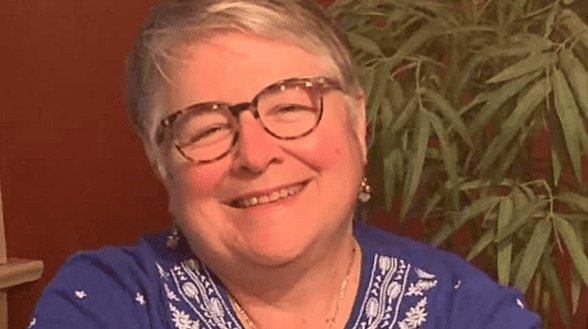It is always a beautiful day when Isaiah appears among my morning readings.
Isaiah is the Biblical version of Gerard Manley Hopkins for me. I hear echoes of him in Hopkins’ poetry all the time, as in this plaintive plea: “Mine, O thou lord of life, send my roots rain”. Isaiah and Hopkins understand each other and they certainly understand me.
The whole book of Isaiah is gorgeous and heart rending and filled with aching compunction. It is the book from which we drink great draughts of comfort during Advent and it journeys with us throughout the sufferings and penances of Lent. How amazing that God used Isaiah’s pen to speak to us. He could have chosen anyone. But he chose a poet, here. A master of metaphors and imagery imbued with the grace of Divine inspiration. Two perfect worlds united in a golden tongue. It fills me with such gratitude!
So often Isaiah laments with us and for us. He travels through sorrow, confusion, and repentance with us. He is a fast friend who is not afraid to tell us we must return to the Lord, but he comes with us along the way. When I opened to this passage today, I wondered: “Have I even read this before?” The Scriptures are like that. Living, moving with us through our lives and calling out here and there to “ pick up and read”. It is a mysterious power of grace, that somehow we always find the perfect treasure for our souls at any particular moment.
Today I stumbled upon Isaiah 26: 16-18. These are the words of a sighing and deflated realization. A weary resignation after a long, prideful struggle; an exhausted surrender to being human when before we thought ourselves like gods. We each know this feeling all too well at one time or another in our spiritual lives.
“As a woman about to give birth writhes and cries out in her pangs, when she is near her time, so were we in your presence, O Lord: we conceived and writhed in pain, giving birth only to wind. We have wrought no deliverance in the earth, the inhabitants of the world cannot bring it forth”.
For a mother reading these words, his imagery is intense and personal. “As a woman about to give birth writhes and cries out in her pangs, so were we in your presence, O Lord. We conceived and writhed in pain, giving birth only to wind….” Laboring mothers know first hand that writhing pain. But they also know the joy of the glorious baby cry – the fulfillment – the fruitfulness, the new life unfolding from the pain which almost instantaneously erases the memory of those hard thorns of labor and leaves only the gentle fragrance of the flower – a newborn babe.
Yet, here, Isaiah is speaking something altogether different. Isaiah cries out in unfulfilled pain: miscarriage! This giving birth to wind. The emptiness that should be joy and gladness and completion of labor….gone like … wind. It is such an earthy, gutting metaphor that tightens the heart and brings tears to the eyes; especially if you are a mother who has known miscarriage. You feel so utterly futile in those first moments, and so helpless to make it right as a mother would want to do.
This is how Isaiah feels before God as he looks within himself and around himself at all the sinful, faithless, careless, self-satisfied people to whom he must prophesy. God has sent punishment and chastisement to wake them from their deluded self-sufficiency – from their obstinate sinfulness. And this suffering brings them a sense of futility bringing them face to face with their finite humanity. They were not, after all, masters of anything in their grasp as they so blithely assumed. Isaiah speaks for us all when he says:
“Salvation we have not achieved for the earth, the inhabitants of the world cannot bring it forth”
How many things have we striven to bring forth and to control through our own power? Bearing the death of a child with stoic resolve fueled perhaps by our anger at God. Trying to make relationships work without grace and the guiding, comforting laws of the Church. Trying to battle addiction to alcohol, drugs, and pornography without prayer. Being unable to conceive a child naturally and seeking, by sheer willpower, all the artificial means of doing so. Aborting babies because they will get in the way of successful careers. Our inability to eradicate poverty through sterile government programs, but at the same time finding ourselves unwilling to help the poor one on one, face to face, as Christ would have us do. Our false security in science. Viruses, plagues, natural disasters we cannot seem to tame, though we try our hardest. We seek wealth and power – bigger and better barns which don’t bring prosperity but mostly wars. We, relying on our own intellects and wills, strive for a vague sort of world peace, but we can never seem to make it happen. We think we can handle it all and we try and we try and we try. but we cannot, by our own “writhing” efforts, bring salvation forth for our own fallen and sinful selves nor for the world at large. Our efforts to give birth to our own happiness are thwarted and disappear like a puff of wind. We are not gods of our own fate and the realization brings its own sort of disillusioned devastation. This is where we find Isaiah and his people at this moment. All so dismal and as futile as giving birth to wind.
But then….Isaiah remembers who God is and you can almost see him and feel him rising from the sad, dusty, and barren heap of himself at the first drop of rain on his face.
“Awake and sing, you who lie in the dust. For your dew is a dew of light, and the land of the shades gives birth”.
God rains down his dew of light. His Manna – His Son – His grace. Eucharist. It all comes back to us, the remembrance of this joy. And the land of shades begins to give birth. What an image for our despair to ponder. With this renewed and sudden light within us, we might begin to notice that saints still walk among us doing slow and deliberate good – spreading dew on despair. We might want to follow them and do likewise. The miracle of forgiveness blossoms where once there was only a barren anger within us. How did it change? The humility of accepting the Eucharist. Addictions faced and conquered one day at a time with gratitude for His strength. The healing of a loss we thought we could not bear. Eucharist. Sudden inspirations in laboratories – grace. It happens here and there – in one soul at a time this birth in the land of shades where we slowly discover in startling reality Jesus’s words “without Me you can do nothing”. But WITH Him? We awake and sing and know the joy of giving birth to truth in all its humbled ways filling this world of shades with the sparkling dew of Christ come down. We become a steady light in this land of darkness. We find that through the patient acceptance of suffering and the certainty of our weakness, we have joyfully given birth to Him and are no longer barren. And we awake. We sing.
Isaiah astounds. He simply astounds.
__________________________________________________
Image: Unsplash+




